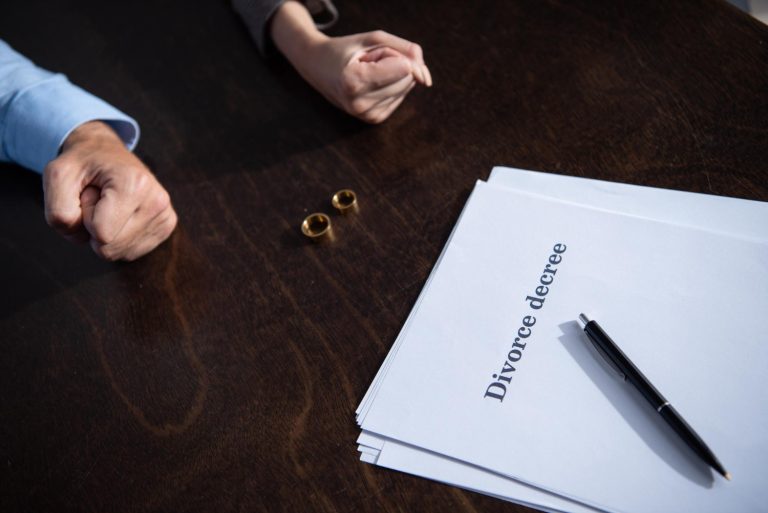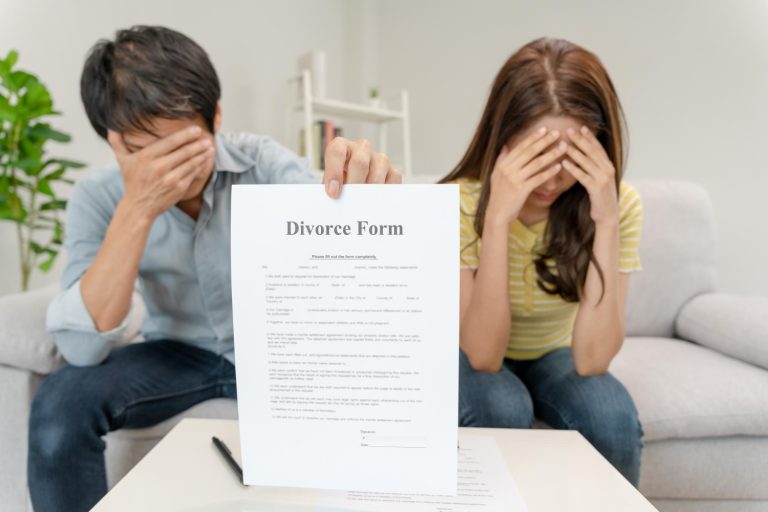When you’re going through a divorce, the timeline of the process can be overwhelming. At MenduniMartindill, we understand how important it is to have clear expectations. As experienced divorce lawyers, we can guide you through the uncontested divorce process in Texas, making it as smooth and quick as possible. In this article, we’ll explain how long an uncontested divorce typically takes and what you can do to speed it up.
As stated in the Texas Family Code, an uncontested divorce takes at least 60 days to finalize. After filing, there’s a mandatory 60-day waiting period before the court can grant the divorce. In some cases, it might extend slightly depending on the court’s schedule.
Introduction to Uncontested Divorce in Texas
Texas uncontested divorces require complete agreement from both spouses on all matters, including property division and child custody.
The process for an uncontested divorce is usually quicker and cheaper than a contested one. Here’s how it works:
- One spouse files a request for divorce with the court.
- The other spouse is given the papers and has a chance to reply.
- If both spouses agree on the terms of the divorce, they write down the agreement and send it to the court for approval.
- At the base, the court checks the agreement to make sure it is fair and good for any kids involved.
- If the court approves the agreement, a final hearing is set, and the divorce is granted.
Even in an uncontested divorce, it’s a good idea to talk to a lawyer to make sure your rights are protected and the agreement is legal. Also, different counties in Texas might have their own rules and steps for uncontested divorces, so check with your local court for more details.
Average Duration for Uncontested Divorce in Texas
Uncontested divorces in Texas are typically finalized more swiftly than contested ones.
The process usually takes about 60 to 90 days from filing to the final decision, but this can change based on different factors like the court’s schedule, if the couple has children or a lot of assets, and if there are any disagreements to settle. It’s important for both people to agree on everything, including splitting property, child custody, and support, to speed things up.
Some places in Texas might have a waiting period before a divorce can be finished, but in general, uncontested divorces are handled faster than contested ones. Talking to a divorce lawyer can help you understand the specific rules and timelines for filing an uncontested divorce in Texas.
Factors Affecting Divorce Timeline
Divorce timelines are influenced by case complexity, spousal cooperation, child custody issues, asset division, and jurisdiction-specific legal requirements.
Several things can slow down the divorce process. These include needing opinions from experts, having multiple lawyers involved, or scheduling problems. Additionally, how busy the court is and their administrative procedures can cause delays. The emotional state of the people involved, like high conflict or leftover feelings, can also make it take longer.
Some legal rules, like mandatory waiting periods or required counseling, can extend the timeline as well.
If the divorce is uncontested or the couple has already agreed on important issues, things can move faster. Working together, being willing to negotiate, and clear communication with lawyers can help speed up the process. Each divorce is different, and many factors can affect how quickly it is finalized.
Steps in the Uncontested Divorce Process
In an uncontested divorce, both spouses can dissolve their marriage amicably without a courtroom battle.
The process usually starts when one spouse files for divorce. The other spouse then gets served with the divorce papers and has a set amount of time to respond.
After that, the spouses need to discuss and agree on matters like dividing their property, who gets custody of the kids, spousal support, and child support. They should write down their agreement and submit it to the court.
Once the court approves the agreement, a final hearing is scheduled. During this hearing, a judge will review everything and issue a final divorce decree. In a basic sense, this document officially ends the marriage and details the terms of the divorce.
It’s important for both spouses to have their own lawyers to make sure their rights are protected and the agreement is fair and legal.
Sometimes, couples might use mediation or collaborative law to settle disagreements outside of court. This can make the process faster and cheaper.
In general, an uncontested divorce, where both sides agree on the terms, is quicker, cheaper, and less stressful than a contested divorce. But, it’s important for both people to understand their rights and responsibilities before finalizing the divorce.
Finalizing Your Divorce Quickly
Open, honest communication with your ex-spouse on asset division, child custody, and alimony can expedite finalizing your divorce.
Getting a mediator or a collaborative divorce lawyer can make these conversations easier and speed up the process. It’s also important to stay organized and keep all needed documents in order. Be ready to compromise and figure out what matters most to you so you can settle things quickly.
Once you have an agreement, make sure to file all the required papers with the court right away and go to any necessary hearings or meetings. Working together with your ex and being cooperative can help make the divorce go faster and smoother.

My Final Perspective
Overall, the duration of an uncontested divorce in Texas typically ranges from 60 to 90 days. However, various factors such as the court’s docket, complexity of the case, and any required waiting periods can affect the timeline.
What MenduniMartindill is saying to think about is, by efficiently navigating the legal process and meeting all necessary requirements, couples can expedite the divorce proceedings and reach a swift resolution.
References
- “Texas Family Law Practice Manual,” State Bar of Texas, Author: Hon. Don Koons
- “Texas Divorce Guide: Your Guide to Successfully Navigating the Divorce Process in Texas,” CreateSpace Independent Publishing Platform, Author: David Todd
- “The Complete Guide to Divorce Law in Texas: Your Step-By-Step Guide to Successfully Navigating the Texas Divorce Process,” Atlantic Publishing Group, Author: Robert Newton






